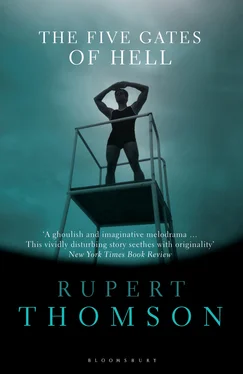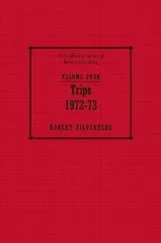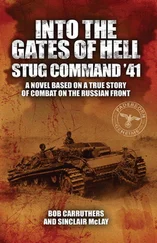Rupert Thomson - The Five Gates of Hell
Здесь есть возможность читать онлайн «Rupert Thomson - The Five Gates of Hell» весь текст электронной книги совершенно бесплатно (целиком полную версию без сокращений). В некоторых случаях можно слушать аудио, скачать через торрент в формате fb2 и присутствует краткое содержание. Год выпуска: 2012, Издательство: Bloomsbury UK, Жанр: Современная проза, на английском языке. Описание произведения, (предисловие) а так же отзывы посетителей доступны на портале библиотеки ЛибКат.
- Название:The Five Gates of Hell
- Автор:
- Издательство:Bloomsbury UK
- Жанр:
- Год:2012
- ISBN:нет данных
- Рейтинг книги:3 / 5. Голосов: 1
-
Избранное:Добавить в избранное
- Отзывы:
-
Ваша оценка:
- 60
- 1
- 2
- 3
- 4
- 5
The Five Gates of Hell: краткое содержание, описание и аннотация
Предлагаем к чтению аннотацию, описание, краткое содержание или предисловие (зависит от того, что написал сам автор книги «The Five Gates of Hell»). Если вы не нашли необходимую информацию о книге — напишите в комментариях, мы постараемся отыскать её.
The Five Gates of Hell — читать онлайн бесплатно полную книгу (весь текст) целиком
Ниже представлен текст книги, разбитый по страницам. Система сохранения места последней прочитанной страницы, позволяет с удобством читать онлайн бесплатно книгу «The Five Gates of Hell», без необходимости каждый раз заново искать на чём Вы остановились. Поставьте закладку, и сможете в любой момент перейти на страницу, на которой закончили чтение.
Интервал:
Закладка:
‘Who are you?’ Gorelli said.
‘You don’t know who we are?’ McGowan said. And then to Creed and Jed, ‘He doesn’t know who we are.’
‘He doesn’t need to know,’ Creed said. ‘Where he’s going he doesn’t need to know anything.’
‘Nothing,’ McGowan said, ‘nothing at all,’ and Jed could hear the cocaine in his laughter.
Jed glanced at Gorelli’s face in the mirror. It was grey, and strangely motionless, as if there’d been a sudden rush of concrete to his head.
‘I don’t understand,’ Gorelli said.
‘Ah,’ Jed said, ‘he doesn’t understand.’
‘I think he’s going to start crying,’ McGowan said. ‘Anyone got a Kleenex?’
Jed laughed.
‘Look,’ Gorelli said, ‘I’m sure we can come to some arrangement here.’
‘Arrangement?’ McGowan said. ‘What arrangement?’
‘We’ve already made all the arrangements,’ Creed said. ‘We’re funeral directors.’
Gorelli lunged for the door, but it was locked. McGowan clubbed him with the butt of the gun. Blood bloomed on Gorelli’s head, a dark rose appearing from nowhere, a magician’s trick. He slumped back in the seat.
‘Any time you want a headache,’ McGowan said, ‘Doctor.’
Creed turned to Jed. ‘Take the old coast road. Less traffic out there.’
Jed left the expressway at the Baker Park exit and cut down through houses of clapperboard and dull red brick. The old coast road ran parallel to the shoreline. All shale and weeds and winds that picked up speed as they swooped in off the ocean, this strip of barren land prepared you for the final desolation of the Crumbles. Baker Park faded. They passed a used-car lot, a twenty-four-hour café, a gas station, then darkness closed round the Chrysler like a fist.
After driving for about ten minutes Jed looked away to the right. The old gravel mine crouched against the sky. So still, so derelict, yet it looked capable of sudden movement. All those metal limbs and struts, all those tense right-angles. It could jump, land up fifteen miles away. It could carry fear with it, like disease. Some dead things seem more horribly alive.
Creed told him to take a right turn, down a narrow track that led towards the ocean. A gate barred the way. A notice hung on the gate and he read the words in the beam of the headlamps: DANGER. NO ENTRY WITHOUT AUTHORISATION.
‘Don’t worry,’ Creed said. ‘It isn’t locked.’
Jed got out of the car and opened the gate. He thought of the children buried alive at the bottom of the mineshafts. He heard the click of small bones.
The track beyond the gate was all potholes and ruts. He nursed the car along in low gear. After half a mile Creed told him to stop. He switched the lights and engine off. Wind pushed at the car with spread fingers, whispered across the hood.
Creed inserted his voice gently into the silence. ‘Get him out of the car.’
They walked Gorelli across the stones to the edge of a gravel pit. The moon dipped out of a cloud, and Jed shuddered. The walls of the pit were almost sheer, falling fifty feet to smooth, dull water that was jagged at the edges, like the top of a tin can. He looked into Gorelli’s face, the face he’d never seen, the face he’d only heard, and so many years ago. Gorelli was standing with his arms by his sides. He was looking at the ground, he seemed to be concentrating; he might’ve been trying to remember something. Then the moon went and Jed’s vision shut down. Then Creed’s voice:
‘Give him the gun.’
McGowan handed the gun to Jed. A sliver of white that must’ve been teeth. McGowan grinning.
‘I can’t see,’ Jed said.
Creed’s voice again: ‘Wait for the moon.’
He waited. The night slowed down. Time like a clock with its hands tied. He felt the water in the pit rise up to meet him. Rise up all silver, spill across the land. Into the hands of the dead, the clawing hands and shifting bones. Into their hands and never to return. The moon came on. He raised the gun and fired twice. So loud suddenly, so bright. A choir in his ears, a furnace in his eyes. When he looked again he saw a black shape on the ground, another black shape crouching over it.
He heard McGowan’s voice: ‘He’s dead.’ Then Creed’s: ‘Get the stuff.’
Jed lowered his arm.
McGowan walked to the car and returned with the long canvas bag and the cardboard box. He unzipped the bag and lifted out a chainsaw. A glimmer of silver as moonlight snagged on the serrated blade. Like holly, Jed thought. In two weeks it’d be Christmas.
When the motor started, distant and ragged, Jed looked away. The wind blew soft across his face. He was shivering. He’d never in his life felt colder. It wasn’t until Creed took his arm and he looked into those black eyes that he remembered where he was.
‘Throw the gun,’ Creed said.
He stared into those eyes.
‘The gun,’ Creed said. ‘Throw it.’
He pulled his arm back and hurled the gun towards the pit. He saw it drop out of sight below the lip. He didn’t hear it land. Creed held a tiny bottle under his nose and the world turned white. He gasped and shook his head.
‘Can you drive?’ Creed asked him.
Jed nodded. ‘I think so.’
When he climbed into the driver’s seat he saw that McGowan was already sitting in the back. The cardboard box sat next to him. Everything seemed so bland and ordinary now.
‘Where’s the rest?’ Jed said.
‘In the gravel pit,’ McGowan said. ‘With stones to hold it down.’
The clawing hands, the shifting bones.
Jed turned to Creed for solid ground. ‘Where now?’
‘The paper warehouse. Change cars.’
When they reached the warehouse, he opened the door for Creed and McGowan as usual. They climbed out and stood still. He moved towards the Mercedes, and then stopped and looked round. Creed and McGowan hadn’t moved. The canvas bag and the cardboard box stood on the concrete by their feet. He could see the blood on McGowan’s clothes.
‘What’s going on?’ he said.
‘You’re not coming with us,’ Creed said.
‘I don’t understand.’ The words echoed. He wished he hadn’t said that. But it was too late.
‘You killed someone,’ McGowan said. ‘You best leave town.’
Creed walked towards him and handed him an envelope. ‘It’s the going rate.’
The going rate. Jed stared at the envelope.
‘But,’ how could he put this? ‘I thought we —’
‘We did,’ Creed said, ‘but it’s over.’
McGowan was smirking.
Jed walked to the door of the warehouse. He stared up into the sky, his vision pulsing. The stars floated free like buoys cut loose on a dark sea. No markings any more, no guidelines. Adrift.
He saw the streetlights again. It seemed as if they were laughing now. Rows and rows of streetlights shaking with laughter. It’s funny, he thought, it’s just funny, and he thought it hard to keep the fear and rage away.
A hand on his shoulder. A glove. ‘I’m asking you to do something for me. It’s the hardest thing I could ask you to do.’ A slight pressure from the hand. ‘I think you can do it.’
McGowan still smirking.
Lies. Not even clever. Not even beautiful. He felt the veins swell in his head. And cried, ‘Why me?’
That soothing voice again. ‘There was nobody else. Nobody we could trust. Nobody,’ a pause, ‘close enough.’
‘What about,’ and Jed turned and pointed at McGowan, ‘what about him?’
A sad smile on Creed’s face.
‘You used me,’ Jed said.
The same sad smile. ‘You’d better leave now.’
‘You, me, and the chairman.’ Jed’s lip curled. ‘Like fuck.’
McGowan took a step forwards.
‘You do this all the time, don’t you?’ Jed said. ‘Pick people up and throw them away.’
Читать дальшеИнтервал:
Закладка:
Похожие книги на «The Five Gates of Hell»
Представляем Вашему вниманию похожие книги на «The Five Gates of Hell» списком для выбора. Мы отобрали схожую по названию и смыслу литературу в надежде предоставить читателям больше вариантов отыскать новые, интересные, ещё непрочитанные произведения.
Обсуждение, отзывы о книге «The Five Gates of Hell» и просто собственные мнения читателей. Оставьте ваши комментарии, напишите, что Вы думаете о произведении, его смысле или главных героях. Укажите что конкретно понравилось, а что нет, и почему Вы так считаете.












